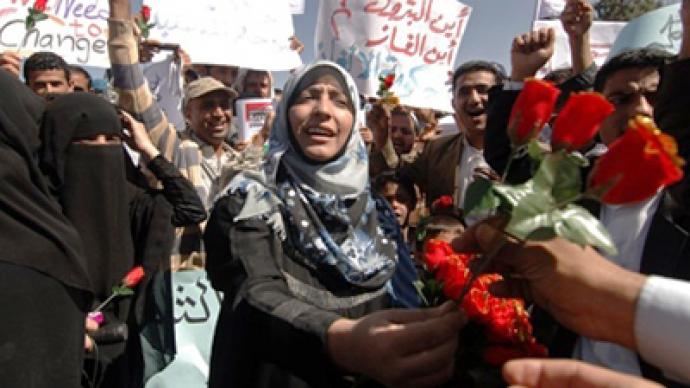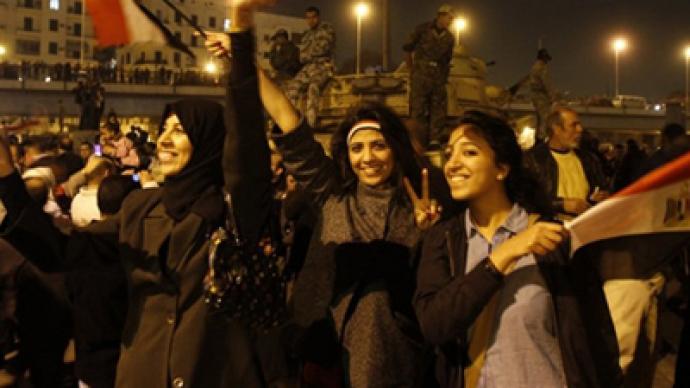In the Arab world, anti-government demonstrations have spread to Libya with hundreds of people taking to the streets in the first sign of the country’s unrest.
Protests have hit Libya, with several hundred people taking to the streets overnight on Tuesday in the city of Benghazi. Protesters were throwing stones, prompting police to respond with rubber bullets, tear gas and water cannon.Massive demonstrations are expected to take place in Libya on Thursday. Protesters are organizing themselves using Twitter, Facebook and other social media.The uprisings in Tunisia and Egypt have triggered a domino effect of protests calling for reform across the Arab world.The call has also gone out for massive demonstrations to take place on Sunday in Morocco, against the king.People are calling for his role to be reduced, making it ceremonial, and for democracy to be introduced into the country.Algeria is also planning protests over the coming days, again using social networking websites as an organization tool.Demonstrations are in a full swing in Yemen where about 2000 people are expressing their concern over poverty, unemployment and corruption. They all are against President Ali Abdullah Saleh who has been in power for more than 32 years.Protests are continuing on Wednesday in Bahrain. People have also gathered for a peaceful funeral procession to bury one of those killed in demonstrations on Monday. Human rights groups are accusing Bahrain’s security forces of using pellet guns at short range.In Iran, thousands of people have clashed with police during a funeral procession for a protester who was also killed in a rally on Monday.Iranian members of parliament called for the execution of opposition leaders who they say orchestrated Monday's protests that saw two people killed. President Ahmadinejad also vowed to punish the organizers, while the US strongly backed the opposition.And in Egypt, which is still recovering from mass protests and strikes, interim power is now in the hands of the military which is reworking the constitution.Middle East expert Dr Sreeram Chaulia says a new wave of democracy is coming in the Arab world.“It looks to be a new wave in the making because democracy often happens in successive waves over a small period of time. You find a number of countries falling like dominoes towards a particular regime type. Samuel Huntington called this ‘The Three Waves’,” he said. “I believe we are on the precipice of another wave that might remake geopolitical and internal arrangements of politics within states across the Arab world.” As for the forms of government that the Arab countries may end up with, Dr Sreeram Chaulia says Turkey’s model is probably the best.“I think the Turkish model is quite interesting because Turkey has managed to marry radical Islam with forms of western democracy, and I think it is a genuine model to aspire to for Egypt, Tunisia, perhaps even Jordan, Yemen, and others like Libya,” he said. “The Turkish example is a modernizing one, but at the same time does not give up traditional social values and keeps the social base and the political structure in some kind of harmony.”


